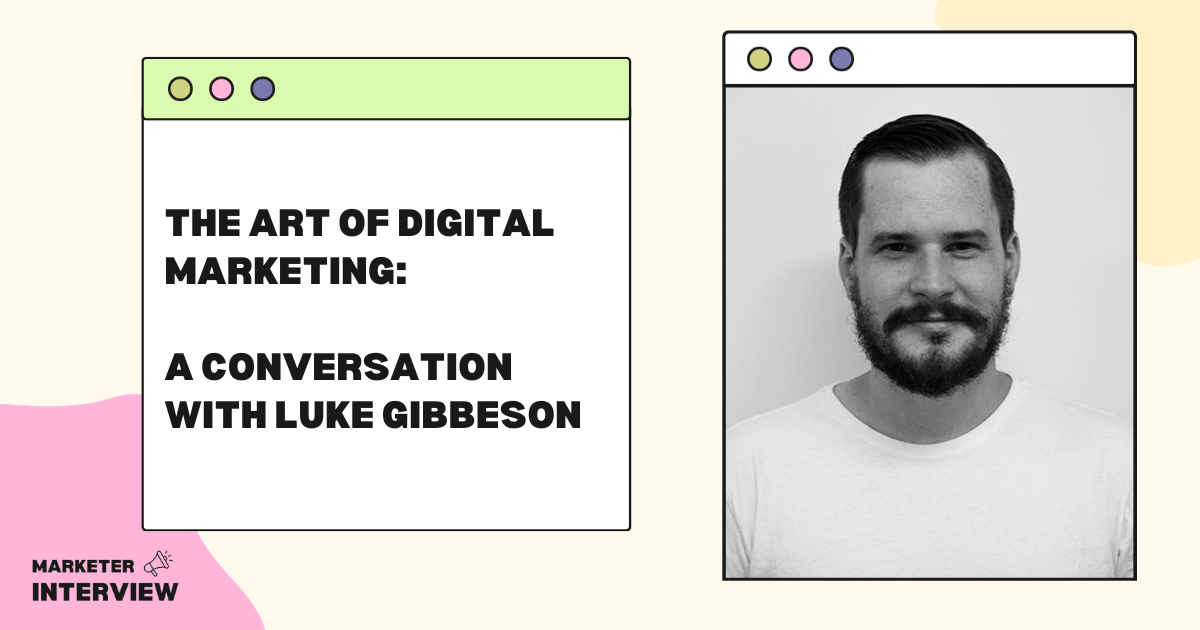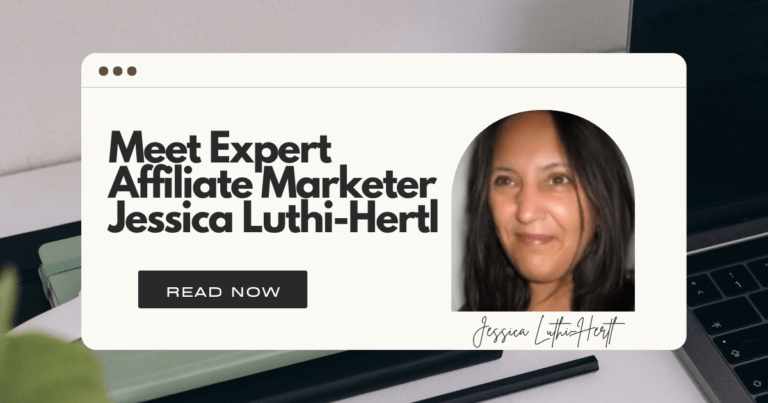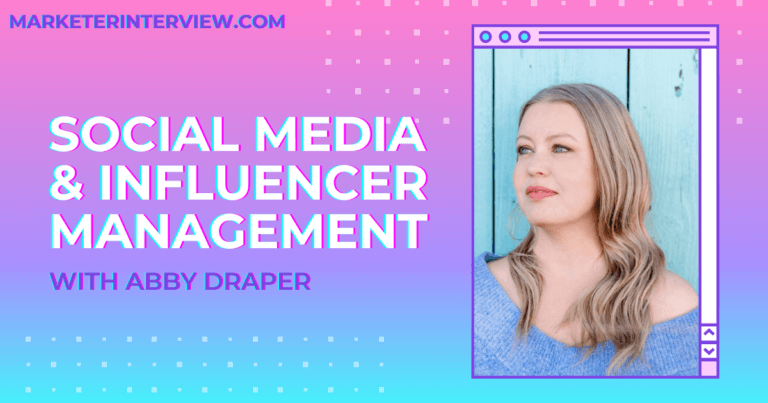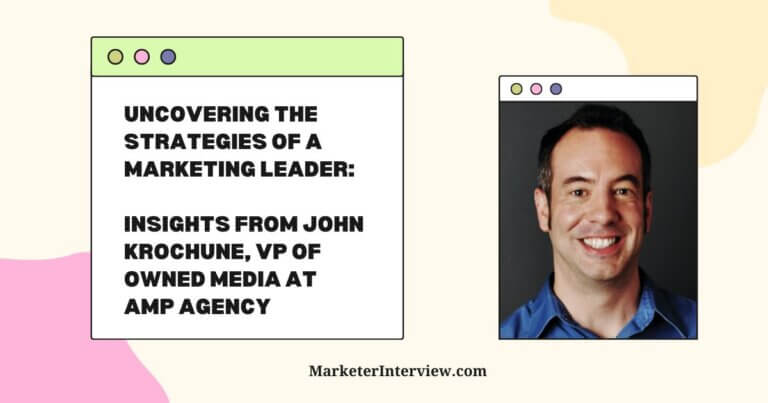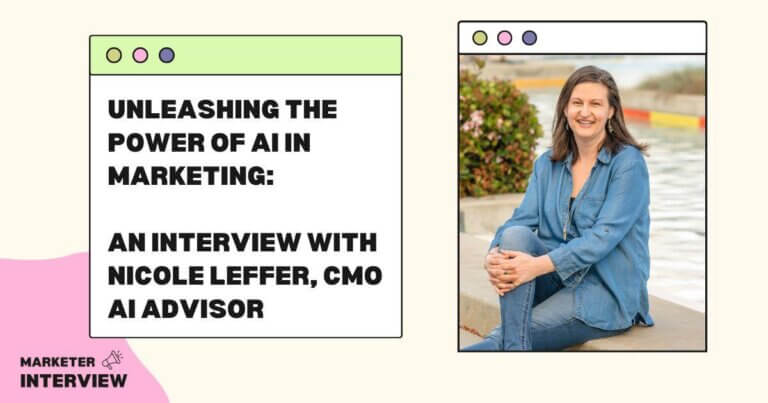The Art of Digital Marketing: A Conversation with Luke Gibbeson
Welcome to Marketer Interview, your source for in-depth conversations with the brightest minds in the marketing world.
Today, a special guest is joining us – Luke Gibbeson, the CRO/SEO/Paid Specialist at RGC Digital Marketing.
Luke has significantly contributed to digital marketing, B2B marketing, e-commerce, and paid media. Let’s dive deep into Luke’s journey and gain insights into his career and expertise in the marketing landscape.
Contents
- 1 Can you share your journey into the world of marketing? How did you get started, and what inspired you to pursue a career in this field?
- 2 As a CRO/SEO/Paid Specialist, your role seems multifaceted. Could you elaborate on your daily responsibilities and how they contribute to your company’s success?
- 3 Tell us about a project or campaign that you’re particularly proud of. What were the challenges you faced, and how did you overcome them?
- 4 Digital marketing is constantly evolving. How do you stay current with the latest industry trends and technologies?
- 5 In B2B marketing, what strategies have you found most effective in reaching and engaging with business customers?
- 6 E-commerce has seen tremendous growth. What key strategies should e-commerce businesses focus on to thrive in today’s competitive landscape?
- 7 Paid media can be a significant part of a marketing budget. How do you determine your clients’ proper channels and budget allocation to achieve the best ROI?
- 8 What advertising strategies have you found particularly effective for customer acquisition and retention?
- 9 Marketing strategies vary widely across industries. How do you tailor your approach to meet the unique needs and goals of different clients?
- 10 Please tell us about the tools and software indispensable to your role as a marketing specialist at RGC Digital Marketing. How do they streamline your work and enhance your results?
My journey into the world of marketing began with an unexpected twist. Initially, I was actively searching for a Graphic Design role, but fate led me to a Graphic Designer and Marketing Assistant position. This opportunity turned out to be a pivotal moment in my career, igniting my passion for marketing.
Starting marketing without formal training was daunting, but what truly inspired me was the massive wealth of knowledge and resources available online. This aspect of marketing is something I sincerely appreciate. It’s a field that constantly evolves, and regardless of your experience level, there are always new concepts to explore and disciplines to master.
As a CRO/SEO/Paid Specialist, your role seems multifaceted. Could you elaborate on your daily responsibilities and how they contribute to your company’s success?
My daily responsibilities include many tasks as a CRO/SEO/Paid Specialist. Primarily, I analyze the online presence and performance of both new and existing clients.
This involves a comprehensive assessment of their digital landscape, identifying strengths, weaknesses, and areas for improvement. I craft tailored strategies to achieve each client’s unique business goals in response to these insights.
These strategies cover many factors, including Conversion Rate Optimisation (CRO), Search Engine Optimisation (SEO), and Paid Advertising. Additionally, I handle our CRO, SEO, and Paid Advertising services, ensuring each client receives the highest expertise and attention.
Tell us about a project or campaign that you’re particularly proud of. What were the challenges you faced, and how did you overcome them?
I’ve played a part in many campaigns for clients within various industries. Still, one specific project that I take great pride in is my involvement with the Italian National Tourist Board’s “Open to Meraviglia” campaign. Leading a substantial display campaign spanning Australia and New Zealand has been a rewarding experience, and the outcomes I achieved are a source of great personal satisfaction.
However, managing a campaign of this scale across multiple countries and agencies posed its own challenges, particularly in client reporting. To address these challenges effectively, my approach centered on providing comprehensive and adaptable reporting solutions that were precisely tailored to meet the unique needs of our clients. This allowed the campaign to be carried out smoothly, culminating in a result that our clients were delighted with.
Digital marketing is constantly evolving. How do you stay current with the latest industry trends and technologies?
In the dynamic realm of digital marketing, staying at the forefront of the latest trends and technologies is not just a preference but a necessity. I regularly read industry news and relevant blogs to keep abreast of the latest developments, strategies, and trends on various industry topics. I also engage in various other activities to ensure I’m never left behind.
Social Media: Actively engaging with the digital marketing community on social media platforms allows me to gain real-time insights and exchange ideas with professionals who share their experiences and expertise.
Webinars and Online Courses: Attending webinars hosted by thought leaders and enrolling in online courses provides me with the latest tools and techniques for navigating the evolving digital marketing landscape.
YouTube Videos: I engage with video content, especially on YouTube, to access valuable insights and tutorials shared by experts and organizations in the field.
Networking: Building professional relationships through in-person and virtual networking events provides opportunities to connect with peers, share experiences, and gain fresh perspectives on industry trends.
Experimentation: I learn by doing and experimenting with new strategies and technologies in real-world campaigns to understand what works best and adapt to changing consumer behaviors.
Google Updates and Blogs: Keeping an eye on Google’s official updates and blogs helps me stay informed about algorithm changes and best practices, allowing for agile adjustments to maintain visibility and relevance.
Data Analysis: I rely on data-driven decision-making, regularly analyzing campaign performance and customer behavior to gain insights into emerging trends and optimize results.
Peer Discussions: Engaging in discussions with industry peers and colleagues fosters innovation and diverse perspectives, ensuring I’m well-prepared to adapt to the ever-changing digital marketing landscape and provide practical solutions to clients.
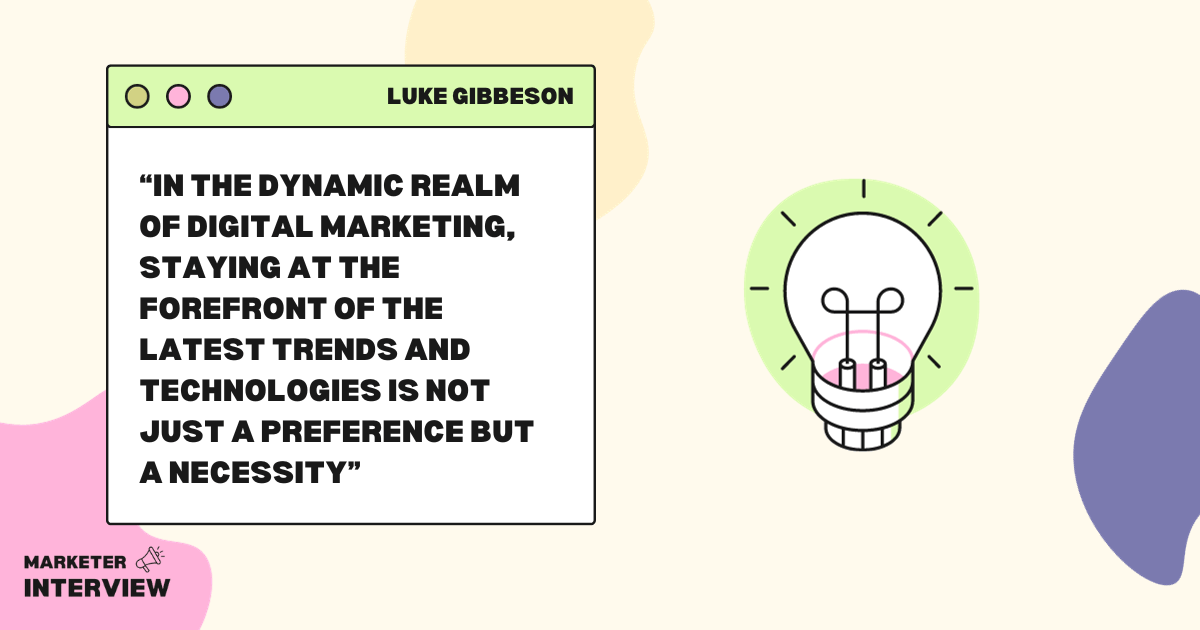
In B2B marketing, what strategies have you found most effective in reaching and engaging with business customers?
To successfully reach and engage with business customers in B2B marketing, I’ve found it crucial to establish a clear understanding of the business’s purpose and the characteristics of its customer personas. With this fundamental knowledge, I then tailor my approach to identify and implement the most effective strategies and methods for engaging each customer persona.
It’s also crucial to emphasize the value proposition and unique selling points that set your product or service apart in the B2B marketplace. Highlighting how your offering can solve specific pain points or improve business efficiency can significantly enhance your engagement efforts.
Additionally, content marketing plays a pivotal role in B2B engagement. Providing informative and insightful content, such as whitepapers, case studies, and thought leadership articles, establishes your business as an industry authority and builds trust with potential clients. This personalized outreach and relationship-building can foster long-term partnerships and successful B2B engagements.
E-commerce has seen tremendous growth. What key strategies should e-commerce businesses focus on to thrive in today’s competitive landscape?
To thrive in today’s highly competitive e-commerce landscape, businesses must adopt a multi-faceted approach to their growth. Three key strategies that e-commerce businesses should focus on include:
- Creating a Community: Building a loyal and engaged community around your brand is paramount. This can be achieved through various means, such as social media groups, forums, or customer feedback platforms.
- High-Quality Product Listings: Your product listings are your digital storefront. Ensure they are accurate, visually appealing, and informative. High-quality images, detailed descriptions, and transparent pricing can instill trust in potential customers.
- Creating Unique Content: Content marketing is a powerful tool. Develop unique and valuable content related to your products or industry. This includes blog posts, videos, tutorials, or interactive experiences.
By embracing these strategies, e-commerce businesses can foster customer loyalty, drive sales, and establish a strong brand presence. These key ingredients are crucial to growth in the e-commerce landscape, and they go a long way toward helping a business stand out from its many competitors.
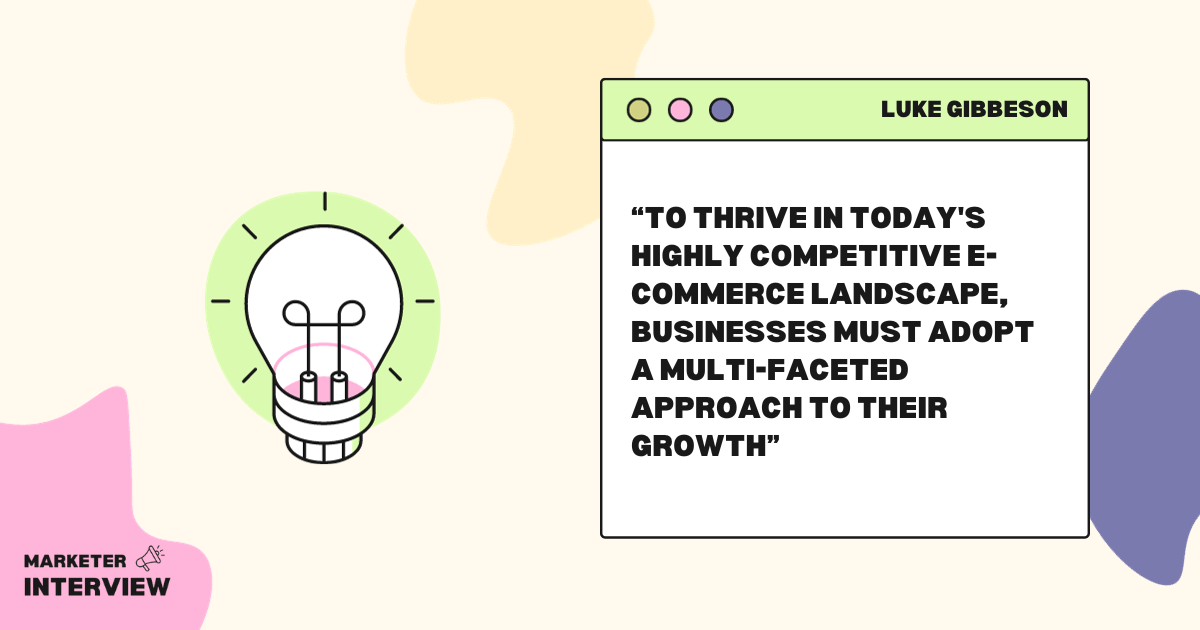
Paid media can be a significant part of a marketing budget. How do you determine your clients’ proper channels and budget allocation to achieve the best ROI?
When optimizing paid media budgets for our clients, we must go beyond the basics and craft a tailored strategy that truly resonates with their needs. This involves delving deep into the client’s business objectives, not just on a surface level, but by aligning our goals with their long-term vision. By fostering this collaborative partnership, I can ensure that every dollar spent on paid media delivers maximum impact.
I constantly monitor industry trends and emerging channels and look for the latest innovations and platforms that can provide our clients with a competitive edge. This forward-thinking approach allows me to adapt and allocate budgets effectively, ensuring our clients are always at the forefront of digital marketing.
Ultimately, our goal is to achieve a good ROI and consistently exceed expectations. We empower our clients to not only reach their target audience but to engage them in a meaningful way, resulting in sustainable growth and success.
What advertising strategies have you found particularly effective for customer acquisition and retention?
Effective advertising strategies for customer acquisition and retention can vary depending on the industry, target audience, and business goals. Through my experiences in a digital marketing agency, I’ve observed that pay-per-click (PPC) campaigns can yield quick results and effectively acquire new customers when well-optimized.
Furthermore, leveraging the power of social media advertising, especially on platforms like Facebook and LinkedIn, allows for highly targeted campaigns that attract new customers and engage and retain existing ones through tailored content and engagement strategies.
Additionally, content marketing has proven to be instrumental in customer retention. Providing valuable, informative content keeps existing customers engaged and positions the brand as an authority in their industry, fostering long-term loyalty and retention.
Affiliate marketing and community-building initiatives like referral or membership programs can also create a sense of belonging and incentivize customers to stay and refer others, further enhancing acquisition and retention efforts.
Marketing strategies vary widely across industries. How do you tailor your approach to meet the unique needs and goals of different clients?
With each client, our priority is to focus on the goals they have set out to achieve with each project. In my experience, it’s best to begin by conducting in-depth research to gain a profound understanding of the client’s industry, competition, and unique value proposition.
By immersing myself in their specific business landscape, I can identify the primary goals, alternative strategies, and promising opportunities. This tailored and data-driven approach ensures that our marketing strategies are aligned with the client’s objectives and well-positioned to adapt to the dynamic nature of their industry, ultimately driving success and tangible results for our diverse clientele.
Please tell us about the tools and software indispensable to your role as a marketing specialist at RGC Digital Marketing. How do they streamline your work and enhance your results?
As a marketing specialist, there are many tools and software tools available, and they all have an essential role to play. I find the most indispensable tools are those that allow you to gather insights from your data, performance, and user behavior, such as:
- Google Analytics
- Google Data Studio
- Google Search Console
- Bing Webmaster Tools
- Microsoft Clarity
- Google PageSpeed Insights
- Google Mobile-Friendly Test
These tools allow me to streamline my work by taking out any guesswork and delivering data-driven strategies, decisions, and reporting to clients.
